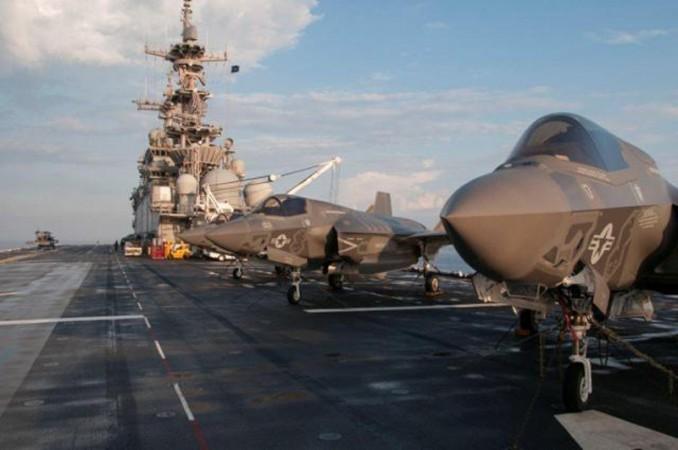
The new US Defence Secretary, Jim Mattis, has acted on the campaign rhetoric of President Donald Trump and ordered reviews of the F-35 and Air Force One replacement programs that were underway in order to hammer out a deal to reduce the price of these two platforms, said an announcement from Pentagon on Friday.
Read: Russia and India to develop new Fifth Generation stealth fighter; but India wants export rights too
During the election campaign, Trump had criticised the two programs as being way too expensive and even extracted a pledge from Boeing and Lockheed Martin over possible reduction in cost, before he took office.
The Pentagon on its part has hinted that it might overhaul the 2018 budget and bring in changes to the defence programs, Defense News reported.
The report also quoted a January 26 memo of Mattis, on what the review would be looking at. The review will first try to "identify the opportunities" to lower the cost of the Lockheed Martin Joint Stike Fighters, F-35, with all its current requirements kept intact. Secondly, the review will also assess on the possibility of Boeing making an advanced Super Hornet as a "competitive, cost-effective fighter aircraft alternative" to the F-35C, which is US Navy's carrier-launched variant.
The second memo from Mattis, speaks about the goal of the review for Air Force One replacement, which is officially called the Presidential Aircraft Recapitalization program. The memo speaks about program cost reduction by lowering the requirements in areas like "autonomy, power generation, cooling, survivability and communications."
Following Trumps tweets where he criticised the two programs, both heads of the companies have met him twice.
But the prospect of an advanced Super Hornet would be like a gift for Boeing, who had lost out to Lockheed Martin during the Joint Strike Fighter competition, which saw Boeing's X-32 losing to X-35.
What would advanced Super Hornet have?
Boeing's advanced Super Hornet could include modifications like new cockpit, conformal fuel tanks and sophisticated sensors and radar. All these are being offered either as a new aircraft or as upgrades to the existing F/A-18s. US Navy has already incorporated these features that include new jammer and active electronically scanned array (AESA) radar.
But is Lockheed Martin confident of not losing out?
Though Lockheed Martin is confident about its platform, it is banking on the F-35's stealth and sensor capability, which is a very important requirement for the military. But it has also admitted that it can do more to reduce the costs.
"We also believe there are opportunities to continue to drive down program costs by using sound buying practices such as multi-year procurement that enable the government to purchase thousands of critical components at an economic scale," said Lockheed Martin.
Boeing too was confident and said the company was looking forward to working with Pentagon and supplying with all the information that it needs with regards to the review.
Meanwhile, on Friday, US President Donald Trump took a 20-minute flight from Washington DC to Philadelphia. He was all praises for his new special plane, the Air Force One. "It's beautiful, a great plane, really beautiful," he told reporters. He went on to call it a "very special plane."
Here are Donald Trump's tweets he posted on Twitter regarding F-35 and Air Force One programs:
Boeing is building a brand new 747 Air Force One for future presidents, but costs are out of control, more than $4 billion. Cancel order!
— Donald J. Trump (@realDonaldTrump) December 6, 2016
The F-35 program and cost is out of control. Billions of dollars can and will be saved on military (and other) purchases after January 20th.
— Donald J. Trump (@realDonaldTrump) December 12, 2016
Based on the tremendous cost and cost overruns of the Lockheed Martin F-35, I have asked Boeing to price-out a comparable F-18 Super Hornet!
— Donald J. Trump (@realDonaldTrump) December 22, 2016
Tweet from Lockheed Martin:
LM CEO just had a good conversation with @RealDonaldTrump… she personally committed to drive down the cost of the F-35! pic.twitter.com/K2aK7pW07f
— Lockheed Martin (@LockheedMartin) December 23, 2016








